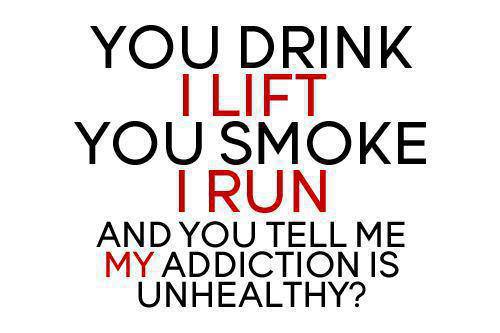Are Steroids Physically Addictive?
Every time you hear the word steroids, what is the first thing that pops in your mind? Is it bodybuilding? Weightlifting? Sports? Baseball? Or maybe, you think of those steroids you use for fighting off allergies.
Addiction is probably something you don’t think of. However, you should. Steroids, specifically anabolic steroids associated with bodybuilding, muscle development, and sports are very addictive, with their uses more common than what you think.
Anabolic steroids increase strength, form muscle mass, and lessen the amount of time required for recovering from a workout. There are athletes who abuse these to boost their performance, and there are also non-athletes or bodybuilders abuse these too improve strength and appearance.
Contrary to what others think, the anabolic steroids can be quite addictive. Bnt, because these don’t necessarily cause a buzz or a high, these are not really as addictive just like other drugs. However, there are still many people using them that can become physically addicted.

Physical Addiction to Steroids
The risks of physical dependence has been properly documented for several kinds of steroids, both the anabolic and glucocorticoid variety. Those people whose systems were able to adapt to the presence of a steroid support may suffer from withdrawal or crisis when there is an abrupt halt on the use of steroids.
As far as anabolic-androgenic steroids are concerned, some of the withdrawal symptoms can include the following:
- Depression
- Fatigue
- Decreased muscle size
- Decreased libido
- Anorexia
- Decreased strength
- Joint and muscle pain
- Headaches
- Steroid cravings
How to Know If You or Your Loved One is Addicted to Steroid?
The addiction’s telltale signs are withdrawal and tolerance. Addiction to the anabolic steroids should consist of maladaptive and problematic use as well as severe impairment in the life of the user. The primary difference between some substances and anabolic steroids is that the steroids aren’t intoxicating. They do not produce a rush or euphoria that’s the signature of some drugs. Instead, the reward is an appearance improvement or muscle growth.
DSM-5 or also known as Diagnostic and Statistical Manual of Mental Disorders, 5th Edition that’s used to diagnose substance use disorders as well as mental disorders has yet to give criteria for addition on steroids. However, researchers adjusted the current criteria of DSM-5 for addition on substance to address t he steroid abuse disorder.
Here’s the list of adjusted criteria for dependence on steroids. If you or your loved one is experiencing at least three of the signs of the symptoms, steroid addiction is likely.
- Inability to quit or decrease using steroids because of the anxiety caused by reducing the muscle size.
- Consistently reducing the duration of the off periods of steroid and getting rid of them altogether.
- Using steroids to prevent or alleviate withdrawal symptoms.
- Withdrawal symptoms such as reduced appetite, fatigue, loss of libido, and depressive mood.
- You require more steroids to achieve you preferred look and can’t keep the same muscle mass level with same dosage.
Talk to your loved ones in a caring and kind tone. Tell them that you’re concerned for her or his health and recommend a steroid addiction treatment.

